
Top Healthcare AI Consulting Firms to Work With - February 2026
Introduction
Artificial intelligence in healthcare has evolved rapidly over the past year, unlocking new possibilities in diagnostics, patient engagement, and operational efficiency. As of February 2026, selecting the right healthcare AI consulting firms has become critical for organizations aiming to stay competitive and compliant.
While many healthcare companies are expanding their internal AI capabilities, partnering with a healthcare AI consulting firm remains essential for accessing deep expertise, overcoming bandwidth constraints, and managing costs effectively. Below, we explore the top 10 healthcare AI consulting firms helping organizations lead in this new era of transformation.
Top 10 Healthcare AI Consulting Firms
1. G & Co.
G & Co. is a leading healthcare AI consulting firm helping enterprise healthcare organizations unlock competitive advantage through strategic consulting, digital transformation, and implementation of artificial intelligence in healthcare to improve patient outcomes, clinical efficiency, and business performance. G & Co. works with global health systems and life sciences companies to design and deploy enterprise-grade AI initiatives, including data-driven diagnostics, operational automation, and AI-powered patient engagement. With deep expertise across artificial intelligence trends in healthcare, G & Co. enables clients to harness the future of artificial intelligence in healthcare while balancing regulatory, ethical, and financial demands.
G & Co. is a minority business enterprise (MBE), as certified by the National Minority Supplier Development Council (NMSDC). If diversity inclusion is a part of your supplier process, contact us—we may be a great fit for your enterprise.

2. Aidoc
Aidoc develops AI-driven radiology solutions that support emergency physicians and radiologists with real-time alerts for life-threatening conditions, helping hospitals apply artificial intelligence in healthcare for faster diagnostics. With FDA-cleared tools used in over 1,500 hospitals, Aidoc is advancing artificial intelligence trends in healthcare by offering AI triage across stroke, pulmonary embolism, and intracranial hemorrhage. Its technology represents a clear example of how artificial intelligence is used in healthcare to improve speed, accuracy, and decision-making in critical care.
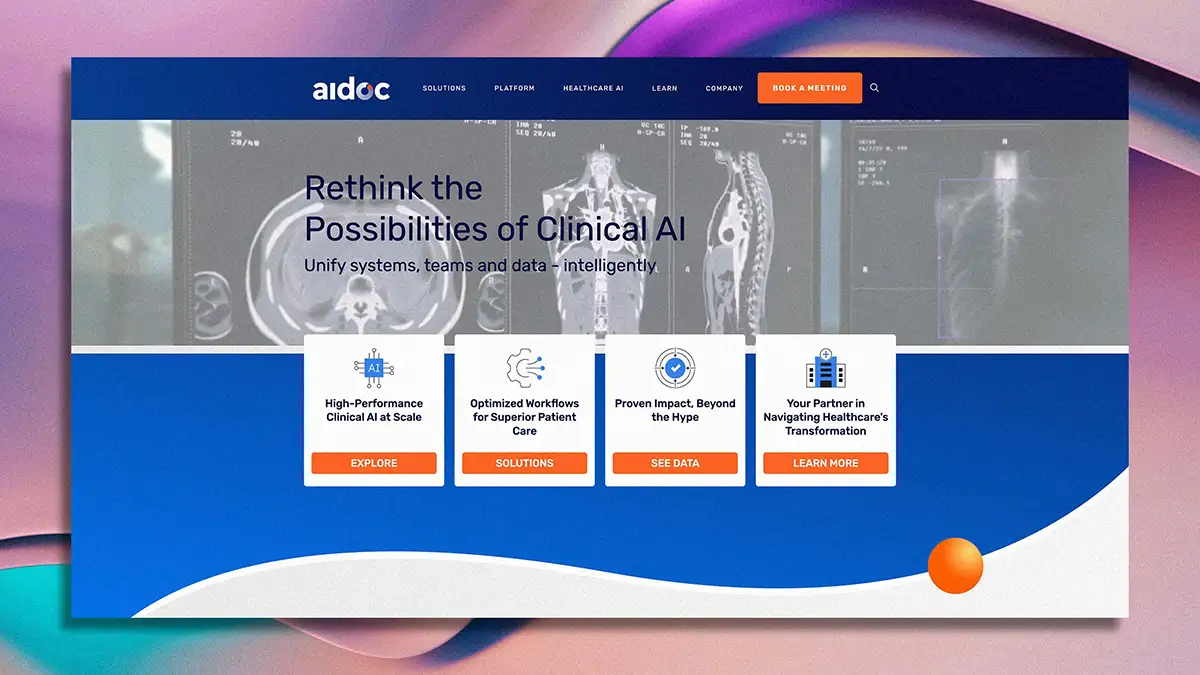
3. Tempus AI
Tempus integrates clinical and molecular data to power AI models for personalized treatment, positioning itself as a leader in artificial intelligence in healthcare for oncology, cardiology, and mental health. Following its 2024 IPO, Tempus is expanding its global footprint by combining AI, bioinformatics, and real-world evidence to tailor patient care. The firm plays a key role in shaping the future of artificial intelligence in healthcare, particularly as it relates to precision medicine and data harmonization at scale.
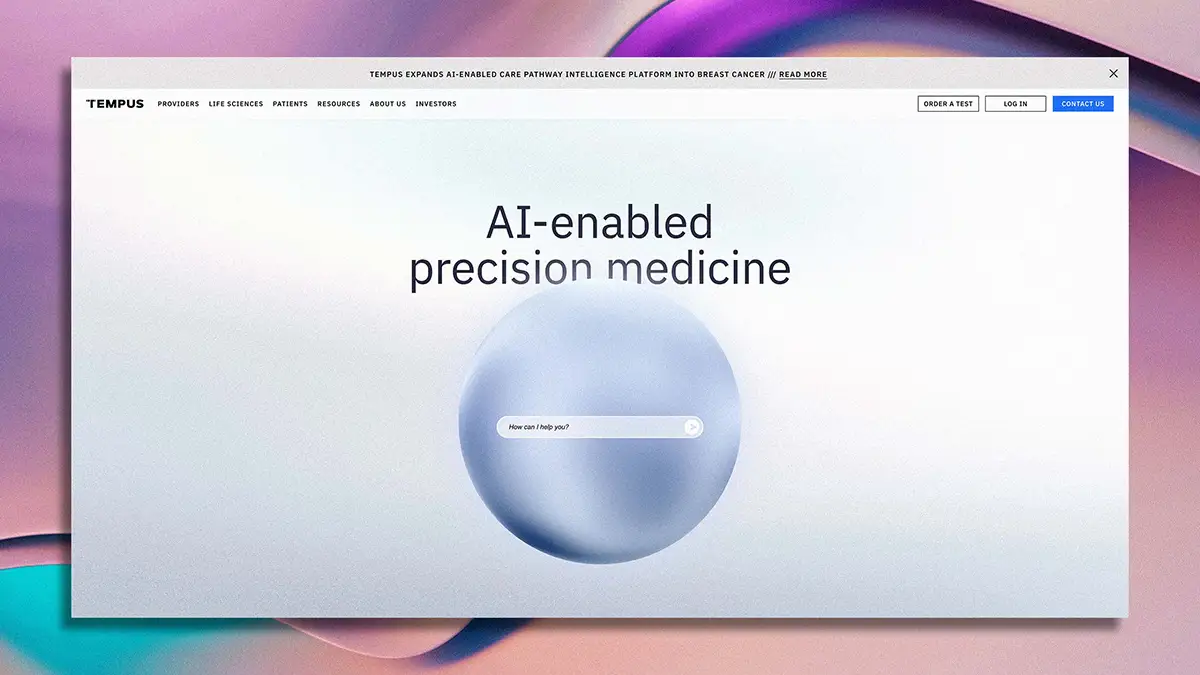
4. Savana
Savana specializes in clinical natural language processing (NLP) to unlock insights from unstructured healthcare data. Their AI-powered platform supports hospitals, research institutions, and pharmaceutical companies with real-world evidence generation, clinical trial optimization, and predictive analytics, enabling data-driven decision-making while maintaining patient privacy and compliance.
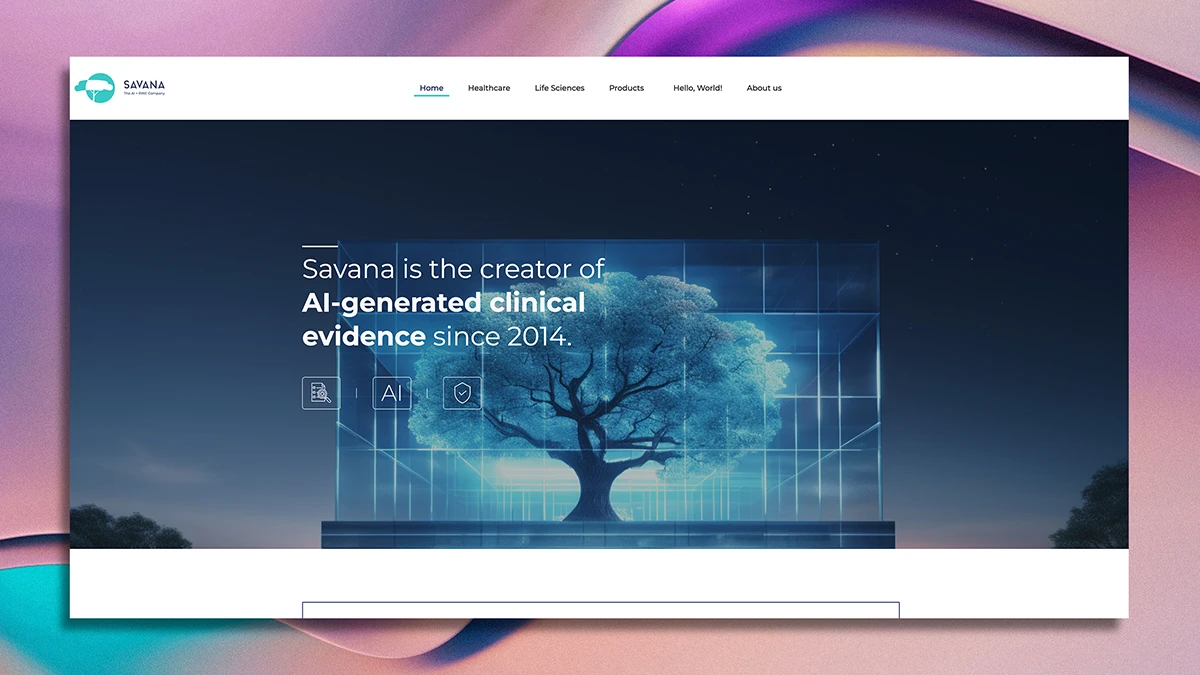
5. CitiusTech
CitiusTech delivers AI consulting, product engineering, and data science services to payers, providers, and medical technology companies around the world. The firm is known for integrating artificial intelligence in healthcare industry use cases—from claims analytics to clinical documentation—and received a $100M investment to expand its platform capabilities. CitiusTech brings value by addressing how artificial intelligence is used in healthcare to reduce cost, enhance patient experience, and ensure quality outcomes.
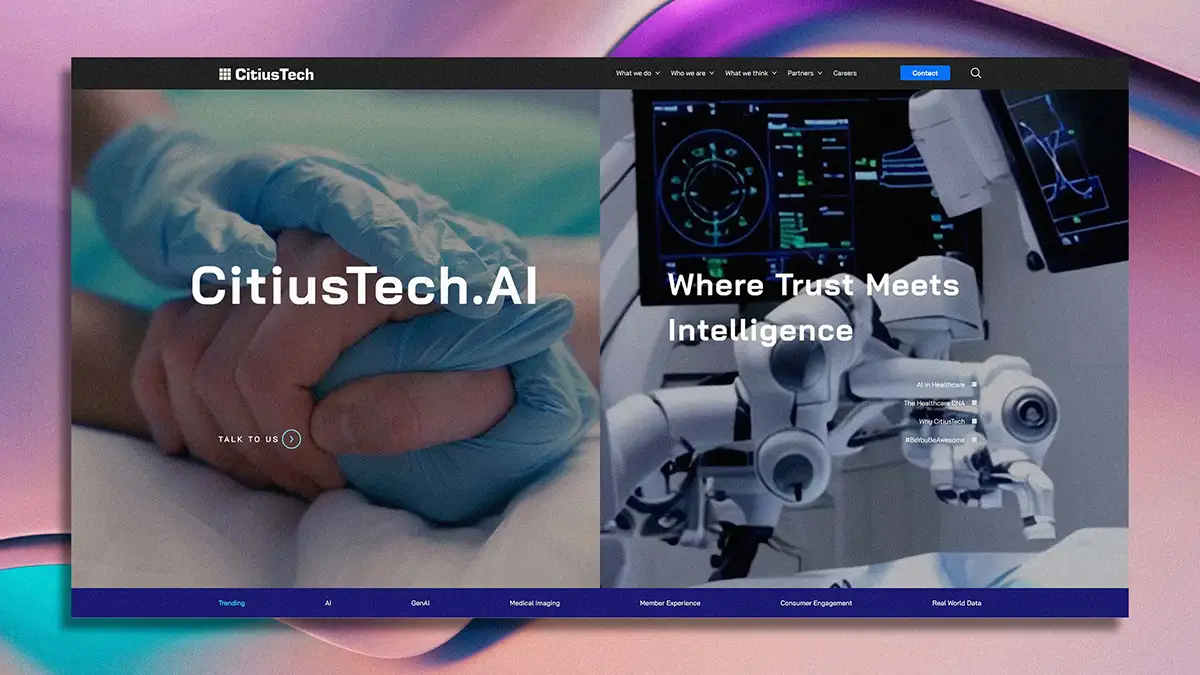
6. Spikewell
Spikewell develops operational AI systems for healthcare providers to improve clinical workflows, capacity planning, and staff coordination. Focused on streamlining hospital operations, Spikewell builds platforms that harness artificial intelligence for healthcare administration. Their tools demonstrate how artificial intelligence in healthcare can reduce administrative burden and drive efficiency across complex environments.
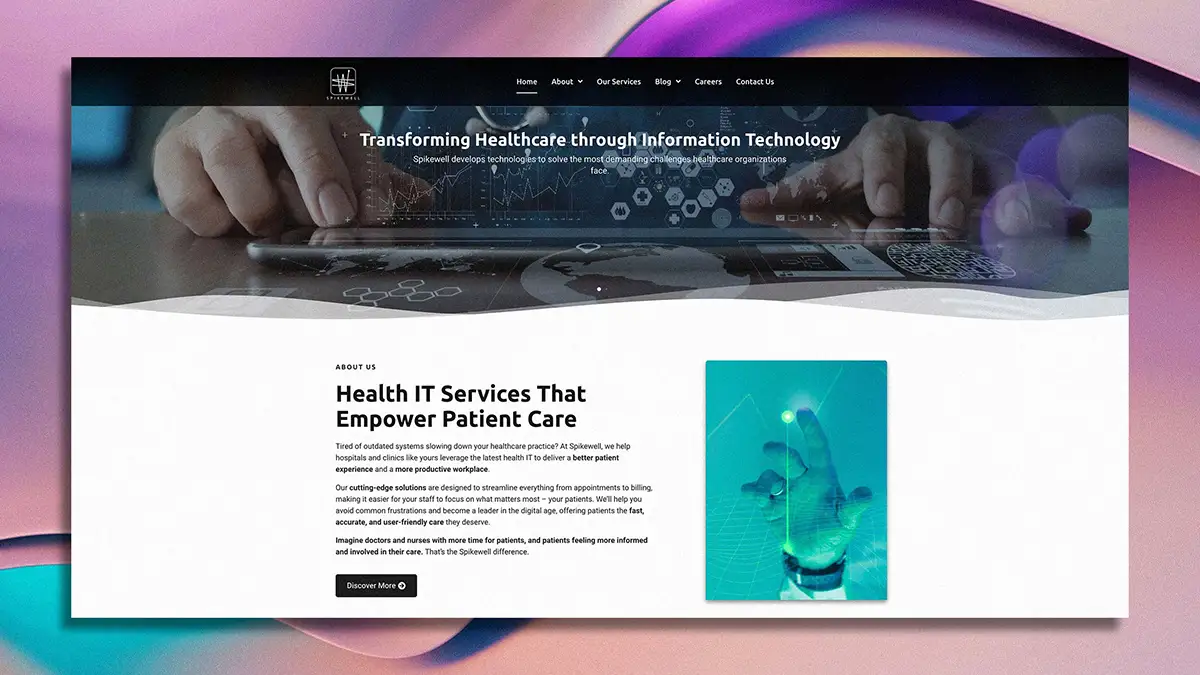
7. Tribe AI
Tribe AI matches healthcare companies with elite machine learning talent to build custom models for diagnostics, patient insights, and predictive analytics. With expertise rooted in artificial intelligence trends in healthcare, Tribe AI works with fast-scaling digital health startups and enterprise providers to solve challenges in care delivery and drug discovery. The firm exemplifies how artificial intelligence is used in healthcare for agile and targeted innovation.
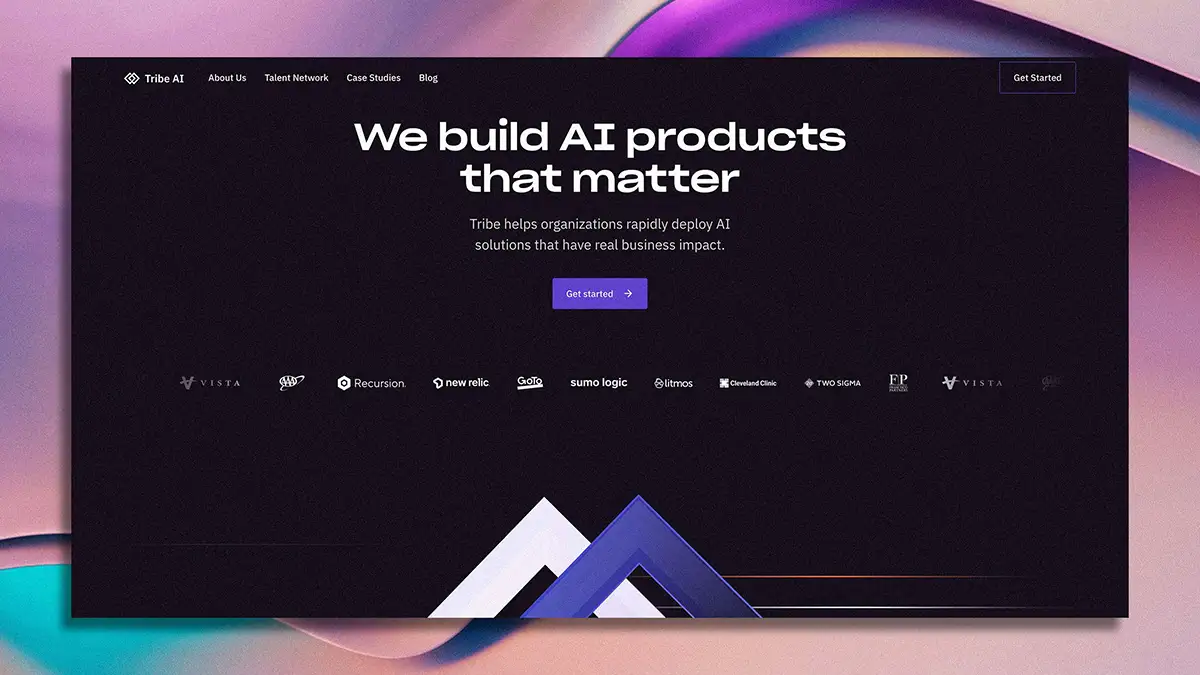
8. Xyonix
Xyonix creates custom AI systems that transform unstructured clinical data—like physician notes, surgical video, or intake forms—into structured, actionable insights. Their solutions span natural language processing (NLP), predictive modeling, and intelligent automation, showing how artificial intelligence in healthcare industry operations can lead to more accurate, data-informed decision-making.
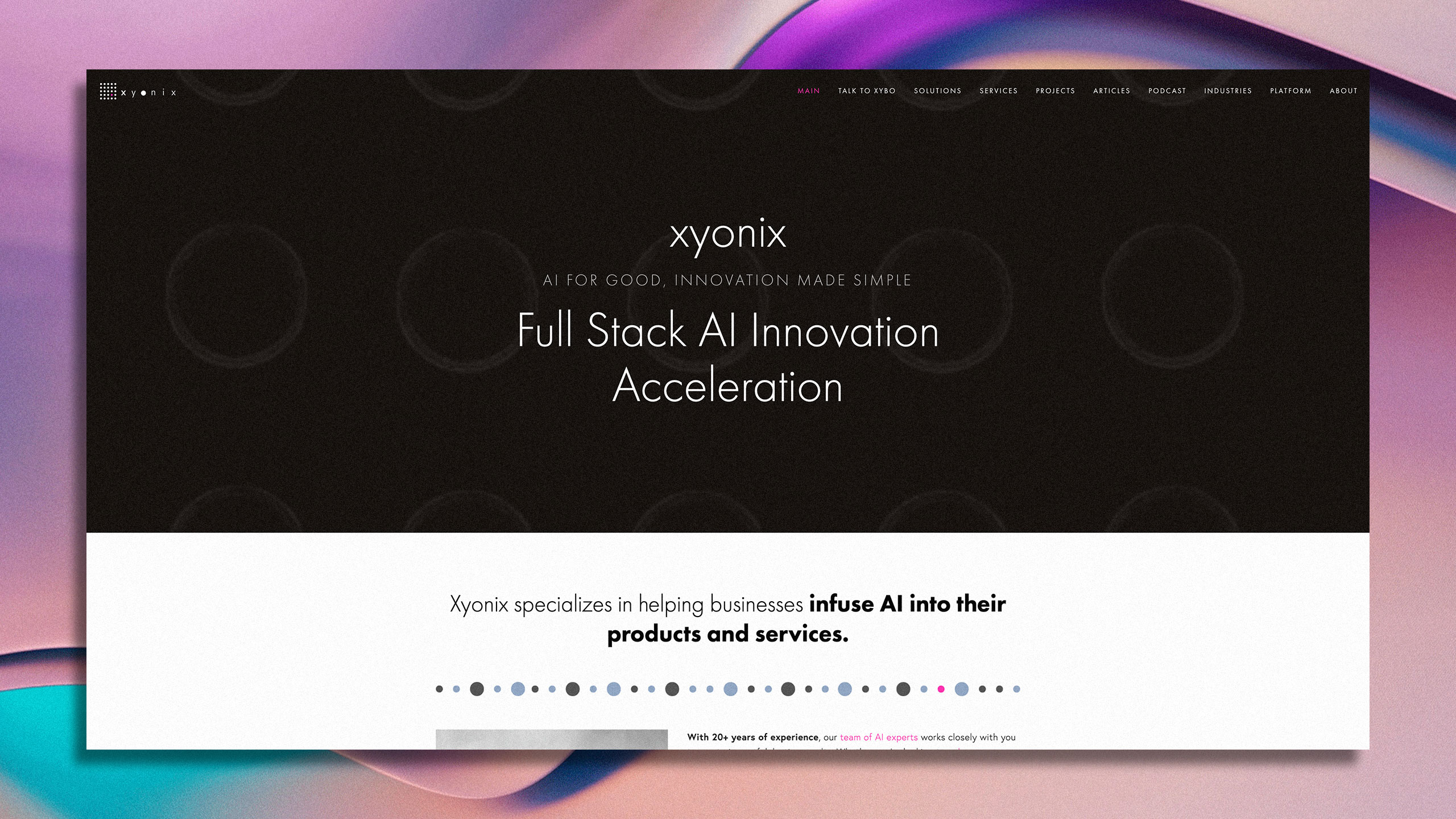
9. LeewayHertz
LeewayHertz delivers end-to-end development of AI platforms for hospitals, biotech, and healthcare IT vendors looking to integrate intelligent systems at scale. The firm builds generative AI tools to assist with clinical documentation, patient support, and EHR system enhancement, offering a clear view into the future of artificial intelligence in healthcare and how it’s improving everyday provider workflows.
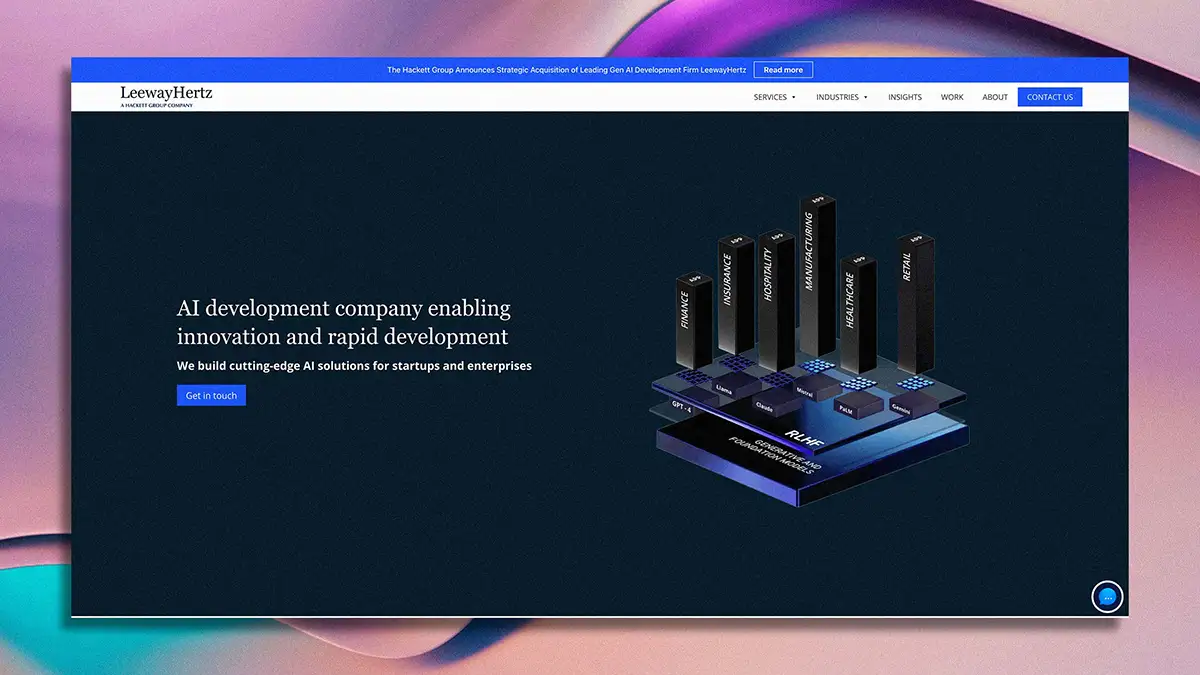
10. MindK
MindK provides AI consulting and software development for digital health solutions, with a strong emphasis on security, compliance, and HIPAA standards. They help companies build healthcare AI platforms from the ground up, including remote monitoring, virtual assistants, and patient data integrations. MindK’s services highlight both the advantages and limitations—pros and cons—of artificial intelligence in healthcare deployment.
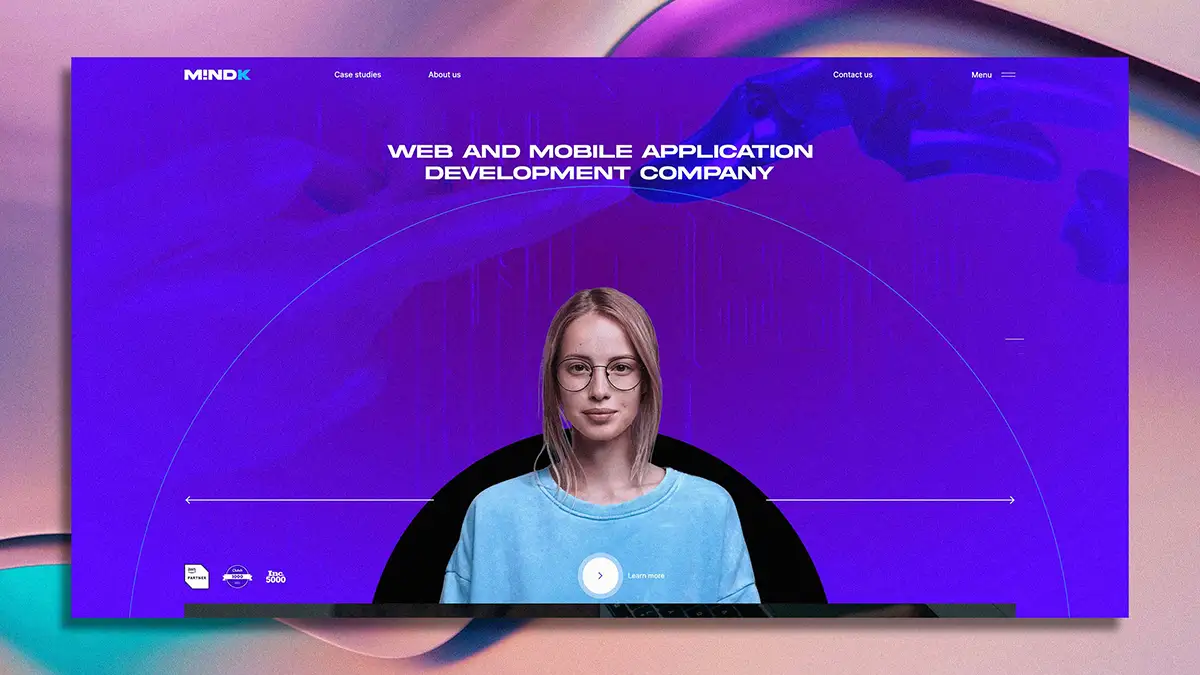
Let’s kickstart the conversation and design stuff people will love.

What Is Healthcare AI Consulting?
Healthcare AI consulting is a specialized advisory service that guides healthcare organizations in evaluating, planning, and deploying artificial intelligence technologies to improve clinical, operational, and financial performance. It encompasses the strategic application of machine learning, natural language processing, computer vision, and predictive analytics tailored to healthcare settings. This form of consulting addresses the unique complexities of the healthcare industry—including data privacy regulations, clinical validation requirements, interoperability challenges, and care delivery workflows—while helping stakeholders understand the pros and cons of artificial intelligence in healthcare. By aligning AI capabilities with enterprise objectives, healthcare AI consulting enables providers, payers, and life sciences firms to extract actionable insights from data, accelerate innovation, and enhance patient outcomes.
How Does Healthcare AI Consulting Work?
Healthcare AI consulting typically follows a structured methodology that begins with assessing an organization’s data infrastructure, AI readiness, and strategic goals, followed by identifying high-impact use cases for artificial intelligence in healthcare—such as clinical decision support, population health management, or administrative automation. Consultants then develop a roadmap that includes solution design, technology selection, governance protocols, and change management strategies to ensure responsible and effective implementation. Throughout this process, consultants work closely with clinical, IT, and operational stakeholders to address data quality, compliance, and integration with existing systems. Once deployed, models are continuously monitored and optimized for accuracy, performance, and alignment with evolving artificial intelligence trends in healthcare and regulatory standards.
What Is a Healthcare AI Consulting Firm?
A healthcare AI consulting firm is a professional services organization that partners with healthcare providers, payers, pharmaceutical companies, and digital health startups to deliver strategy, implementation, and optimization of artificial intelligence technologies. These firms combine deep expertise in both healthcare operations and advanced analytics to solve challenges related to diagnostics, workflow automation, patient engagement, and clinical research. Equipped with multidisciplinary teams of data scientists, engineers, and healthcare strategists, they provide guidance on everything from ethical model design to data governance and digital infrastructure. Healthcare AI consulting firms play a critical role in helping organizations navigate the rapidly evolving landscape of artificial intelligence in the healthcare industry, ensuring AI investments are scalable, compliant, and aligned with measurable business and clinical outcomes.
As artificial intelligence continues to reshape the healthcare industry, organizations need more than just technology—they need specialized guidance to translate AI potential into real-world outcomes. A healthcare AI consulting firm brings the strategic insight, technical expertise, and industry knowledge required to turn complex data into actionable solutions. This section outlines the core capabilities that distinguish leading healthcare AI consulting firms, demonstrating how they help clients harness artificial intelligence in healthcare to drive clinical innovation, streamline operations, and improve patient care at scale.
What Services Do Healthcare AI Consulting Firms Provide?
AI Strategy & Roadmapping
A healthcare AI consulting firm helps clients define a clear strategic vision for artificial intelligence in healthcare by assessing organizational readiness, identifying high-impact use cases, and developing phased implementation plans. This includes aligning AI initiatives with clinical, operational, and financial goals while accounting for the regulatory and ethical constraints unique to the healthcare industry. Through tailored roadmaps, consulting firms guide healthcare organizations from exploration to execution—ensuring investments in artificial intelligence trends in healthcare deliver measurable outcomes.
Data Infrastructure & Engineering
Consulting firms provide expertise in building and modernizing healthcare data infrastructure to support AI applications at scale. This includes designing secure, HIPAA-compliant data pipelines, establishing robust data governance, and integrating data from disparate sources such as EHRs, imaging systems, lab results, and IoT devices. By addressing foundational data quality and architecture, firms enable clients to deploy AI models that are both reliable and operationally viable within complex healthcare environments.
Predictive Analytics & Machine Learning
Healthcare AI consulting firms develop and deploy custom machine learning models that help predict patient outcomes, identify risk factors, optimize resource allocation, and inform clinical decision-making. These models are trained on real-world data and fine-tuned to align with the nuances of healthcare delivery, from reducing hospital readmissions to predicting disease progression. Consultants ensure that each model is explainable, validated, and adaptable to the ever-evolving demands of artificial intelligence in healthcare.
Clinical Workflow Optimization
By leveraging AI, consulting firms help healthcare providers redesign and automate clinical workflows—reducing manual tasks, minimizing errors, and improving throughput. This includes applications like AI-driven triage, intelligent scheduling, virtual assistants, and automated charting tools. Firms work closely with care teams to integrate these solutions into daily routines, ensuring that artificial intelligence for healthcare enhances—not disrupts—clinical operations and provider productivity.
Natural Language Processing (NLP) Solutions
Consulting firms implement NLP systems that can extract and interpret unstructured data from physician notes, pathology reports, and patient communications. These solutions make it possible to turn free-text information into structured, searchable insights that support population health analysis, coding accuracy, and real-time decision support. NLP represents one of the most promising artificial intelligence trends in healthcare, particularly for unlocking value from underutilized clinical data.
AI-Driven Patient Engagement
Healthcare AI consulting firms build intelligent systems that support personalized patient experiences through chatbots, symptom checkers, and remote monitoring tools. These platforms use AI to deliver tailored education, reminders, and responses based on patient history and behavior. By enhancing communication and adherence, these tools demonstrate how artificial intelligence in healthcare can improve outcomes and reduce strain on care teams.
Regulatory Compliance & Ethical AI
Firms play a critical role in ensuring that AI implementations adhere to privacy laws (like HIPAA and GDPR), follow ethical best practices, and align with standards for bias mitigation and model explainability. Consulting services include risk assessments, audit preparation, and developing internal policies for AI governance. With rising scrutiny around the pros and cons of artificial intelligence in healthcare, firms help clients adopt AI responsibly and transparently.
AI Model Validation & Monitoring
Healthcare AI consulting firms offer continuous validation, monitoring, and performance tuning of AI models to ensure accuracy, reliability, and compliance over time. They establish feedback loops and performance dashboards that track real-world results and flag model drift. Ongoing oversight is essential to maintaining the effectiveness and safety of artificial intelligence in healthcare industry applications, particularly as data shifts and clinical practices evolve.
Custom AI Product Development
Some consulting firms go beyond strategy to design, build, and deploy proprietary AI solutions tailored to a client’s needs. This includes full-stack development of algorithms, data integration layers, and user interfaces that are secure, scalable, and interoperable with existing systems. These offerings are particularly relevant for healthcare enterprises looking to own their AI IP and control the future of artificial intelligence in healthcare within their organization.
Change Management & Training
Implementing AI often requires changes to workflows, roles, and decision-making processes. Healthcare AI consulting firms provide structured change management programs that support adoption, minimize resistance, and prepare clinical and operational teams through hands-on training. These efforts help ensure that artificial intelligence for healthcare becomes an integrated, accepted, and sustainable part of how organizations deliver care.
How Long Does a Healthcare AI Consulting Engagement Take to Complete?
Implementing artificial intelligence in healthcare is a complex process that requires careful planning, customization, and integration across clinical and operational systems. The timeline for a healthcare AI consulting engagement can vary significantly based on the organization’s goals, data maturity, regulatory requirements, and the scope of the solution. This section outlines the typical phases and durations involved in a consulting engagement—offering a clear view into how long it takes to move from initial strategy through to AI deployment and performance optimization within the healthcare setting.
Scope of the Engagement
The size and complexity of the project significantly influence how long a healthcare AI consulting engagement will take. Narrow initiatives, such as implementing a single predictive model or automating a specific workflow, may take just a few weeks to complete, while broader transformations—like building an enterprise-wide AI ecosystem—can span several months or longer. Prospective clients should expect consultants to align timelines with defined objectives and ensure deliverables are clearly staged across milestones.
Data Availability and Quality
AI initiatives rely on large volumes of clean, structured, and accessible data. If a healthcare organization has fragmented or poor-quality data—common due to legacy systems or incomplete EHR integration—it can extend timelines due to required data cleaning, normalization, and engineering. A consulting firm typically begins with a data audit to assess readiness, and any deficiencies in data infrastructure will need to be addressed before model development can proceed.
Regulatory and Compliance Requirements
Timelines may be extended by the need to comply with regulations such as HIPAA, GDPR, and internal data governance standards. Security protocols, consent management, and documentation requirements for audit readiness all take time to implement properly. For clients operating in highly regulated environments or with sensitive patient data, additional review cycles and compliance checkpoints should be factored into the overall engagement timeline.
Stakeholder Alignment and Decision-Making
Delays often arise when multiple stakeholders—such as IT, clinical leadership, operations, and legal teams—need to align before decisions are made. A healthcare AI consulting firm typically facilitates workshops and stakeholder mapping early in the engagement to reduce friction later. However, slow internal approval processes or shifting leadership priorities can add weeks or months to a project’s duration.
Customization vs. Off-the-Shelf Solutions
Projects involving high levels of customization—such as bespoke AI models, data integrations, or tailored clinical tools—naturally require more time than engagements using prebuilt platforms or solutions. Prospective clients should clarify their tolerance for adapting to existing tools versus building from scratch, as this tradeoff significantly affects the timeline and resource requirements of the engagement.
Technical Integration Complexity
Integrating AI tools into existing systems such as EHRs, PACS, or scheduling software adds complexity and time to a project. The number of integration points, system interoperability, and the availability of APIs or middleware can speed up or delay implementation. Healthcare AI consulting firms typically account for this during technical discovery, but clients should expect additional effort if legacy infrastructure lacks flexibility or documentation.
Validation and Testing Requirements
Healthcare organizations must validate AI models in real-world settings to ensure clinical accuracy, safety, and usability. Testing cycles—including pilot programs, peer review, and statistical validation—are often built into later phases of the engagement. The time required for validation depends on the criticality of the use case (e.g., clinical diagnosis vs. back-office automation) and the volume of feedback needed from end users.
Change Management and Training
Implementing artificial intelligence in healthcare often requires not only technical deployment but also organizational adaptation. Training staff, revising workflows, and supporting adoption can add several weeks or more to a project, especially in larger systems with multiple departments. A consulting firm typically recommends phased rollouts and champions within the organization to manage change efficiently and minimize disruption.
How Healthcare AI Consulting Firms Price Their Work
Pricing for healthcare AI consulting engagements can vary widely based on the scope, complexity, and duration of the project. Factors such as the level of customization, data requirements, regulatory compliance, and integration needs all influence the overall cost. This section provides an overview of the key pricing considerations prospective clients should understand when evaluating partnerships with healthcare AI consulting firms, helping to set clear expectations around investment and value.
Project Scope and Complexity
The scope and complexity of a healthcare AI consulting engagement heavily influence pricing, as broader projects with multiple use cases, extensive data engineering, and advanced AI model development require more resources and time. Consulting firms typically assess the specific goals and challenges before providing a cost estimate, ensuring that the pricing reflects the level of effort needed to deliver meaningful artificial intelligence solutions tailored to healthcare clients.
Level of Customization
Highly customized AI solutions, including bespoke algorithms and unique integrations with existing healthcare systems, generally command higher fees than implementations relying on off-the-shelf technologies. Pricing models often account for the additional development, testing, and validation efforts involved in tailoring artificial intelligence in healthcare applications to a client’s specific workflows and compliance requirements.
Data Preparation and Management
Since data quality and accessibility are critical in healthcare AI, consulting firms factor in costs related to data cleansing, normalization, and secure data pipeline construction. Complex data environments requiring significant preprocessing or extensive data governance measures typically increase the overall engagement price, as they demand specialized skills and longer timelines.
Regulatory Compliance and Risk Management
Ensuring compliance with healthcare regulations such as HIPAA and GDPR adds layers of complexity and requires careful documentation, audits, and security protocols. Consulting firms incorporate these compliance-related activities into their pricing, reflecting the additional legal and operational oversight necessary to mitigate risks when deploying artificial intelligence in healthcare environments.
Duration and Resource Allocation
Longer engagements involving sustained support, ongoing model monitoring, and iterative improvement often involve pricing structures based on time and materials or retainer agreements. Healthcare AI consulting firms typically align resource allocation—such as data scientists, engineers, and project managers—with the expected duration of the project to provide transparent and scalable pricing options.
Integration and Technology Stack
The technical environment into which AI solutions must be integrated impacts pricing, as connecting with multiple legacy systems or proprietary healthcare platforms can require custom interfaces and additional development effort. Firms price engagements based on the complexity and number of integration points to ensure seamless deployment of artificial intelligence for healthcare applications.
Value-Based Pricing Models
Some healthcare AI consulting firms adopt value-based pricing approaches, aligning fees with the measurable outcomes delivered—such as cost savings, improved patient outcomes, or operational efficiency gains. This model incentivizes consultants to focus on high-impact solutions and offers clients the potential for more flexible and results-oriented investment structures.
Why Hire a Healthcare AI Consulting Firm

Partnering with a healthcare AI consulting firm offers organizations specialized expertise and strategic guidance critical for navigating the complexities of artificial intelligence in healthcare. These firms bring deep knowledge of industry regulations, advanced analytics, and clinical workflows that internal teams may lack, helping to accelerate AI adoption while managing risk. This section highlights the key reasons why engaging a healthcare AI consulting firm can be essential to successfully unlocking the full potential of AI-driven innovation and delivering measurable value across patient care and operations.
Access to Specialized Expertise
Healthcare AI consulting firms provide access to a unique blend of clinical knowledge, data science, and technical skills that are often unavailable in-house. Their expertise spans understanding complex healthcare workflows, regulatory environments, and advanced AI techniques, enabling organizations to design and implement solutions that truly address industry-specific challenges.
Accelerated Time to Value
Working with a healthcare AI consulting firm can significantly shorten the time it takes to move from concept to deployment. These firms bring proven methodologies, best practices, and prebuilt tools that streamline project execution, helping organizations realize the benefits of artificial intelligence in healthcare faster and more efficiently.
Managing Regulatory and Compliance Risks
Healthcare is one of the most regulated industries, and AI applications must adhere to strict standards around patient privacy and safety. Consulting firms specialize in navigating these regulations, ensuring AI implementations comply with HIPAA, GDPR, and other relevant laws, reducing the risk of costly penalties and reputational damage.
Overcoming Internal Resource Constraints
Many healthcare organizations face bandwidth limitations and skill gaps that hinder AI adoption. Engaging a consulting firm supplements internal teams with dedicated experts who can focus solely on AI initiatives, allowing organizations to scale AI projects without overburdening existing staff.
Customization and Scalability
Healthcare AI consulting firms tailor solutions to the unique needs of each organization, considering existing systems, clinical workflows, and business goals. They design scalable architectures that can grow with the organization, ensuring that AI investments remain relevant and effective over time.
Objective, Data-Driven Decision Making
By leveraging their experience and access to industry benchmarks, consulting firms help healthcare organizations make informed, objective decisions about where and how to apply artificial intelligence. This reduces guesswork and aligns AI initiatives with measurable outcomes and strategic priorities.
Continuous Support and Optimization
Beyond initial implementation, healthcare AI consulting firms provide ongoing support to monitor AI models, update algorithms, and respond to changing clinical and operational needs. This continuous partnership helps sustain the value of AI investments and adapt to evolving artificial intelligence trends in healthcare.
How to Choose The Most Reliable Healthcare AI Consulting Firm
Choosing the right healthcare AI consulting firm is a critical decision that can determine the success of an organization’s artificial intelligence initiatives. With the complexity of healthcare data, strict regulatory requirements, and the fast pace of AI innovation, partnering with a firm that understands these challenges and aligns with the organization’s goals is essential. This section explores the key factors and criteria to consider when selecting a healthcare AI consulting firm to ensure a productive and impactful collaboration.
Relevant Industry Experience
When choosing a healthcare AI consulting firm, it is crucial to look for demonstrated experience working within the healthcare industry. Firms with a proven track record in artificial intelligence in healthcare understand the unique clinical, operational, and regulatory challenges, allowing them to design solutions that are both effective and compliant.
Technical Expertise and Innovation
A strong healthcare AI consulting firm must possess deep technical expertise across AI disciplines such as machine learning, natural language processing, and predictive analytics. Additionally, the firm should stay abreast of emerging artificial intelligence trends in healthcare to bring innovative approaches that keep clients ahead of the curve.
Compliance and Security Focus
Given the sensitive nature of healthcare data, selecting a consulting firm with rigorous standards for data privacy, security, and regulatory compliance is essential. Firms should have established protocols to ensure adherence to HIPAA, GDPR, and other relevant laws, mitigating risks associated with AI deployment in healthcare settings.
Collaborative and Transparent Approach
The right consulting firm will prioritize collaboration, working closely with clinical, IT, and leadership teams throughout the engagement. Transparency in processes, decision-making, and pricing fosters trust and ensures alignment with organizational goals, ultimately improving the success of AI initiatives.
Customization and Scalability Capabilities
Healthcare AI solutions must be tailored to the specific workflows, systems, and objectives of each organization. Look for firms that emphasize customization and design scalable architectures that can evolve with your needs, avoiding one-size-fits-all approaches that may limit long-term value.
Proven Results and Client References
Requesting case studies, client testimonials, and references provides insight into a consulting firm’s ability to deliver measurable outcomes. Firms that can demonstrate successful AI implementations with quantifiable improvements in patient care, operational efficiency, or cost savings are preferable partners.
Post-Implementation Support
AI in healthcare is not a one-time project; it requires ongoing maintenance, monitoring, and updates. Select a consulting firm that offers continuous support services to optimize AI models, address emerging challenges, and help the organization adapt to the evolving artificial intelligence landscape in healthcare.
15 Questions To Ask Healthcare AI Consulting Firms Before You Hire One

Before committing to a partnership with a healthcare AI consulting firm, organizations often have important questions about the firm’s expertise, approach, and ability to deliver results. Addressing these questions upfront helps ensure alignment, manage expectations, and reduce risks associated with complex AI initiatives. This section highlights some of the most common questions prospective clients should consider asking to gain clarity and confidence before hiring a healthcare AI consulting firm.
Here are 15 questions a prospective client might have before hiring a healthcare AI consulting firm:
- What specific experience do you have working with healthcare organizations similar to ours?
- Can you provide examples of successful AI projects you’ve completed in the healthcare industry?
- How do you address data privacy and regulatory compliance, such as HIPAA and GDPR, in your AI solutions?
- What is your approach to integrating AI tools with existing healthcare systems like EHRs or PACS?
- How do you ensure the accuracy, safety, and explainability of AI models deployed in clinical settings?
- What is your process for handling data quality issues or incomplete healthcare datasets?
- How do you involve clinical and operational stakeholders during AI development and implementation?
- Can you support the scaling of AI solutions across multiple departments or facilities?
- What kind of ongoing support and maintenance do you provide after AI deployment?
- How do you measure the success and ROI of AI initiatives in healthcare organizations?
- What methodologies do you use for validating AI models before full deployment?
- How do you manage the ethical considerations and potential biases in healthcare AI?
- What is the typical timeline and cost structure for an engagement like ours?
- How do you handle change management and user training during AI adoption?
- Can you share references or case studies from clients in the healthcare sector?
What Specific Experience Do You Have Working With Healthcare Organizations Similar to Ours?
Understanding a consulting firm’s experience with organizations that share your size, structure, and industry segment is critical to ensuring they grasp your unique challenges and regulatory environment. Experience with similar clients suggests the firm has navigated comparable complexities and is more likely to deliver tailored AI solutions that fit your needs. This question helps filter firms that have relevant expertise from those with a more generic approach.
Can You Provide Examples of Successful AI Projects You’ve Completed in the Healthcare Industry?
Asking for concrete examples of past projects provides insight into the firm’s capabilities and approach to solving healthcare challenges through AI. Success stories demonstrate how the firm applies artificial intelligence in healthcare, delivers measurable outcomes, and overcomes common obstacles. This information can help set realistic expectations and assess whether the firm’s strengths align with your strategic goals.
How Do You Address Data Privacy and Regulatory Compliance, Such As HIPAA and GDPR, in Your AI Solutions?
Healthcare data is highly sensitive, and non-compliance with privacy regulations can lead to significant legal and financial consequences. It is essential to understand how a consulting firm incorporates compliance into their AI development lifecycle, from data handling and security to consent management and audit readiness. Their approach should minimize risk and demonstrate a proactive stance toward evolving regulatory standards.
What Is Your Approach to Integrating AI Tools With Existing Healthcare Systems Like EHRs or PACS?
Healthcare organizations operate within complex technology ecosystems, and successful AI adoption depends on seamless integration with systems such as electronic health records (EHRs) or picture archiving and communication systems (PACS). Evaluating the consulting firm’s integration strategies reveals their ability to overcome interoperability challenges and ensures that AI tools complement rather than disrupt existing workflows.
How Do You Ensure the Accuracy, Safety, and Explainability of AI Models Deployed in Clinical Settings?
The clinical impact of AI models hinges on their reliability and transparency. Prospective clients should inquire about the firm’s validation processes, risk mitigation strategies, and methods for making AI decisions interpretable by clinicians. Ensuring model accuracy and explainability is crucial for building trust and meeting regulatory expectations in healthcare environments.
What Is Your Process for Handling Data Quality Issues or Incomplete Healthcare Datasets?
Healthcare data is often fragmented, inconsistent, or incomplete, which can compromise AI model performance. A consulting firm’s approach to data preprocessing, cleansing, and augmentation reflects its ability to build robust AI solutions. Understanding how they address these data challenges helps clients gauge readiness and anticipate any additional investments needed to improve data quality.
How Do You Involve Clinical and Operational Stakeholders During AI Development and Implementation?
Successful AI adoption requires collaboration among clinicians, administrators, and IT teams to align solutions with real-world needs and workflows. Inquiring about stakeholder engagement reveals the firm’s commitment to co-creation, change management, and user acceptance. This collaborative approach reduces resistance and improves the chances of sustained adoption.
Can You Support the Scaling of AI Solutions Across Multiple Departments or Facilities?
Many healthcare organizations aim to expand AI applications beyond pilot phases to enterprise-wide deployment. Evaluating a consulting firm’s experience with scaling highlights their ability to manage complexity, standardize solutions, and ensure consistent performance across diverse environments. Scalability is essential for maximizing the return on AI investments.
What Kind of Ongoing Support and Maintenance Do You Provide After AI Deployment?
AI models require continuous monitoring, updates, and retraining to remain effective as clinical practices and data evolve. Prospective clients should understand the firm’s post-deployment services, including performance tracking, issue resolution, and adaptation to new regulatory or operational requirements. Ongoing support is vital for sustaining AI benefits over time.
How Do You Measure the Success and ROI of AI Initiatives in Healthcare Organizations?
Quantifying the value of AI projects helps justify investment and guides future initiatives. A consulting firm should have clear metrics and methodologies for assessing clinical outcomes, operational efficiency, cost savings, or patient satisfaction improvements. Transparent measurement practices enable clients to track progress and make data-driven decisions.
What Methodologies Do You Use for Validating AI Models Before Full Deployment?
Validation ensures that AI models perform as intended and are safe for clinical use. Firms should employ rigorous testing methods, including retrospective studies, prospective trials, and statistical evaluations, tailored to healthcare contexts. Understanding these methodologies helps clients verify that AI tools meet quality and safety standards.
How Do You Manage the Ethical Considerations and Potential Biases in Healthcare AI?
AI systems can inadvertently perpetuate biases, leading to unequal care or flawed decisions. Prospective clients should assess how a consulting firm identifies, mitigates, and monitors bias throughout model development and deployment. Ethical AI practices are fundamental to maintaining fairness, trust, and compliance in healthcare applications.
What Is the Typical Timeline and Cost Structure for an Engagement Like Ours?
Clear expectations around project duration and pricing models help organizations plan resources and budgets effectively. Understanding timelines and cost drivers—including scope, data readiness, and customization—allows clients to evaluate feasibility and avoid surprises during execution. Transparent pricing discussions also support better decision-making.
How Do You Handle Change Management and User Training During AI Adoption?
Introducing AI solutions often changes workflows and requires new skills. A consulting firm’s approach to training, communication, and support influences user acceptance and long-term success. Clients should look for structured change management plans that address cultural, operational, and technical challenges to ensure smooth transitions.
Can You Share References or Case Studies From Clients in the Healthcare Sector?
References and case studies provide third-party validation of a consulting firm’s capabilities and client satisfaction. They offer practical insights into project outcomes, challenges overcome, and the firm’s working style. Reviewing these materials helps prospective clients gain confidence in selecting a reliable and experienced partner.
Searching for the right Healthcare AI Consulting Firm?
Hiring a healthcare AI consulting firm brings specialized expertise, industry knowledge, and strategic guidance that are essential for navigating the complex landscape of artificial intelligence in healthcare. These firms help organizations overcome data challenges, ensure regulatory compliance, and integrate AI solutions seamlessly into clinical and operational workflows. By partnering with experienced consultants, healthcare providers and payers can accelerate innovation, reduce risks, and maximize the impact of AI investments—ultimately improving patient outcomes and operational efficiency. Engaging a trusted healthcare AI consulting firm is a critical step toward realizing the full potential of AI-driven transformation in the healthcare industry.
G & Co. stands out as a leading healthcare AI consulting firm by combining deep industry expertise with advanced technical capabilities tailored to the unique needs of healthcare organizations. With a proven track record of delivering scalable, compliant, and clinically validated AI solutions, G & Co. guides clients through every phase of AI adoption—from strategy and data readiness to deployment and ongoing optimization. Their collaborative approach ensures alignment with client goals, while their commitment to ethical AI and regulatory standards minimizes risk. For organizations seeking a partner to unlock the strategic and operational benefits of artificial intelligence in healthcare, G & Co. offers trusted guidance and measurable results.
Submit an inquiry to G & Co. on our contact page or click on the blue "Click to Contact Us" button on the bottom right corner of your screen for your convenience. We look forward to hearing from you.






%20(1).png)




